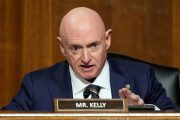California has adopted a law, the New Motor Voter Act, AB 1461, which is designed to get more people registered to vote who are likely to support bigger government. This is an illustration of why the Electoral College should be retained as the method by which we elect a president of the United States.
If the United States were to adopt some form of direct popular vote for choosing the president, this type of law could become typical, especially in the more politically liberal states such as California. As it stands now, no matter how many voters are added to the rolls, California cannot increase its number of electoral votes. The allocation of electoral votes is determined by the decennial federal census, in which representation in the House of Representatives is apportioned by total population in the state — the number of registered voters does not matter. Under the U.S. Constitution, a state is entitled to the same number of electoral votes as they have members of the House of Representatives, plus their two senators.
But under direct popular vote, there would exist a strong incentive to pad the voter rolls in order to exert greater influence on the outcome of the presidential election.
What is California doing to increase the number of registered voters, and what is its expected effect?
Under the law, citizens (and it being California, there will probably be many foreigners registering, both legal and illegal) will be registered to vote at offices of the Department of Motor Vehicles (DMV). Persons applying for or renewing a driver’s license, or even transacting other business at the DMV, will have their information sent electronically to the secretary of state as a registered voter — unless they say they are not eligible to vote, or they opt out of registering.
California officials are looking to add millions of new voters to the rolls this way: more Latinos, younger voters, those with foreign-born parents, and persons with lower education levels. In other words, the very type of demographic expected to vote for California Democrats such as Nancy Pelosi and Jerry Brown.
The Public Policy Institute of California estimates that the share of voters who have not attended college could increase by more than six percent, and the percentage of Latino voters as part of the electorate will swell from 23.8 percent to 27.8 percent.
But supporters of increasing the number of registered voters are concerned that even this process is still too difficult for many of the people they want to add to the rolls. They point to the requirement that registrants must go into another room to answer questions about party preference and language preference on a touch-screen terminal. This supposedly arduous requirement has led to about a third of people attempting to vote at DMV offices to just walk out before completing this process. It is just too confusing to these potential voters, argue advocates of padding the voters rolls.
While this effort of adding more voters from demographics that tend to favor more government programs will only increase the leftist trend in the Golden State, it mostly affects politics in only one state. Abolition of the Electoral College, by moving to some form of direct popular vote method of choosing the president, would mean that such actions as this in California would increase the adverse impact of the state’s leftism on those living in other states.
First, one must ask the obvious question: If an individual is so unconcerned about public affairs that he or she must be coddled or coerced into registering to vote, is it really a good thing to add that person to the voter rolls? After all, do we want even more uninformed voters? If we believe that voting is a serious business, then should it not be the activity of serious people?
It is obvious what California’s government — already controlled strongly by the Democratic Party — is attempting to do. Leftist legislators want to pad the rolls with certain demographics which will only increase that control.
Those who argue for the abolition of the Electoral College contend that it is “not democratic.” Of course, the purpose of government is to protect our lives, our property, and our liberty, not to give the majority a way to impose its will on the minority. Writing in our Declaration of Independence, Thomas Jefferson said government received its just powers from the consent of the governed. He did not say that democracy should trump liberty. A just power is a power given to government for the purpose of protecting our lives, our property, and our liberty. It is not a just power of government, for example, to restrict our basic rights, even if the majority wish to do so.
When Benjamin Franklin left the Constitutional Convention in 1787, he was asked what form of government had they given us, and he replied, “A republic — if you can keep it.” He did not say, “A democracy that abolishes the states and individual liberty.”
If our principal consideration is majority rule, then of what use is the Bill of Rights, or even the original text of the Constitution, both of which were designed to limit the government?
We elect our president by our present method because we are a federal Republic — not a unitary democracy. To those who oppose the Electoral College because it is “undemocratic,” we must ask, “Would you abolish the U.S. Senate?” After all, California has no more representation in the U.S. Senate than does Wyoming, despite the vast disparity of population.
For that matter, the House of Representatives is not “democratic” either. If it were, we would go into the voting booth and choose either the Democratic Party, the Republican Party, the Libertarian Party, or what have you. Once the national totals were added up, and the Democrats received, say, 46 percent of the vote, they would get 46 percent of the seats. Then, if the Republicans took 47 percent of the vote, they would be given 47 percent of the seats, and so on.
But we do not do it that way. Members of the House of Representatives are elected in single-member districts. It really does not matter what happens in Nancy Pelosi’s San Francisco district — persons in western Nebraska still get to choose their own representative who has a somewhat different constituency. Members of the House of Representatives must please the folks in a specific district. Or, at least please them more so than would be the case under a direct national vote.
And if we had a direct popular vote for president, can you imagine the voter fraud across the country were it an extremely close election? The great population centers of the country would dominate the process even more so than they do now.
Which means that laws increasing the registration of voters, such as those in California, would become even more commonplace. Then, we would get even more voters such as we see in the comedic man- (or woman) -in-the-street interviews — voters who have no idea who their two U.S. senators are, or what is meant by separation of powers — but they do know that Brad Pitt used to be married to Jennifer Aniston. They may not be able to keep up with actions in Congress affecting their lives, but they are really good at keeping up with the Kardashians.
Photo of homeless person: Lezly Ruiz
Steve Byas is a professor of history at Randall University in Moore, Oklahoma. His book History’s Greatest Libels is a challenge to the attacks upon historical figures such as Thomas Jefferson, James K. Polk, and Christopher Columbus.




